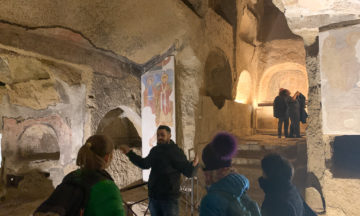
20Sep
Human Centred Values Co-creation in Cultural Heritage Adaptive Reuse
The implementation of the circular model to urban regeneration strategies requires a paradigm shift in which all economic values co-exist and co-evolve with social/human values, thus allowing the implementation of a human-centred strategy. Therefore, the new human-centred circular regeneration strategies must consider the impacts they have not only in terms of the physical transformation of space but also on the social level.
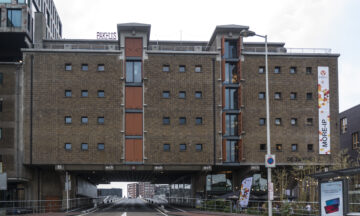
19Sep
Best Practices of Circular Governance in Cultural Heritage Adaptive Reuse
Circular governance is a necessary precondition for sustainable adaptive reuse of cultural heritage. The database of good practices – presented on the final CLIC Conference of the Horizon 2020 project CLIC “Circular models Leveraging Investments in Cultural heritage adaptive reuse” (online on Wednesday and Thursday 22-23 September 2021)
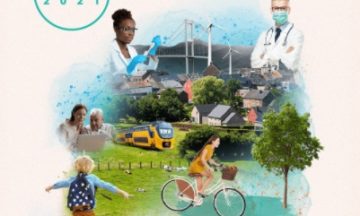
16Sep
19th European Week of Regions and Cities
Under the framework of 19th European Week of Regions and Cities, ICHEC C-SHIP program, the Metropolitan Research Institute, the Institute for Research on Innovation and Services for Development IRISS-CNR, and the European Research Executive Agency of the European Commission kindly invites you to their joint workshop: Collaborative heritage ecosystems in post-pandemic EU. The workshop will take place on Tuesday 12 October 2021 from 11:30 to 13:00.
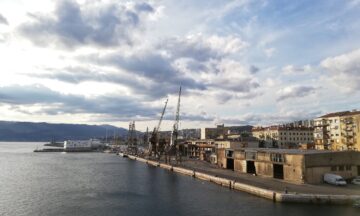
05Aug
Ready, NOT-steady, action! Co-creating a new circular life for cultural heritage sites
After a three-year participatory process, the cities of Salerno and Rijeka, Västra Götaland region and Pakhuis de Zwijger cultural organisation have released their Local Action Plans for Adaptive Reuse of Cultural Heritage.
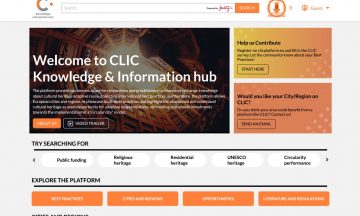
04Aug
Opportunities of cultural heritage adaptive reuse from European cities and regions: CLIC Knowledge & Information Hub
The CLIC Knowledge and Information Hub platform has been renewed! It has been enriched with information about opportunities of cultural heritage adaptive reuse in Europe and a knowledge base of all existing literature and regulations on Adaptive Reuse and Circular Economy topics
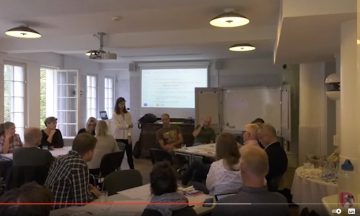
03Aug
HUL Workshops in the CLIC cities in a nutshell
In 2011 UNESCO has adopted the Recommendation on the Historic Urban Landscape (HUL), meant as an addition to existing conservation approaches. The Historic Urban Landscape is an approach that aims to manage urban heritage conservation and sustainable development in a holistic fashion.
Between May 2018 and September 2020, 5 Historic Urban Landscape workshops were carried out in the CLIC pilot cities under the coordination of Eindhoven University of Technology.
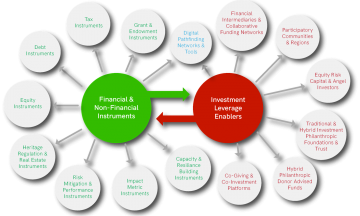
02Aug
Enabling hybrid financial instruments to leverage regenerative capital investment in cultural heritage adaptive reuse
Cultural heritage adaptive reuse activities embody circular economy dimensions, which engender social, cultural, environmental and economic regeneration, within the global value chain. Such activities, including adaptive reuse and energy retrofit of built heritage structures, protection of natural eco-systems and cultivation of socio-cultural community enterprise endeavours, involve long-term investment horizons necessitating the integration of sustainable funding mechanisms.
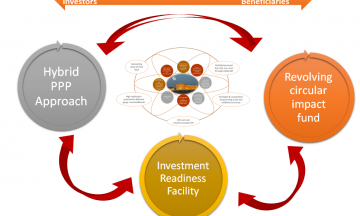
01Aug
CLIC circular financing instruments: leveraging investments in cultural heritage adaptive reuse
INIZIATIVA, partner of CLIC project, has developed a proposal of three circular financing mechanisms, i.e. Hybrid Public-Private-Partnership Approach, Revolving Circular Impact Fund and Investment Readiness Facility, which will be presented in the deliverable 4.2 expected at the end of September 2021.
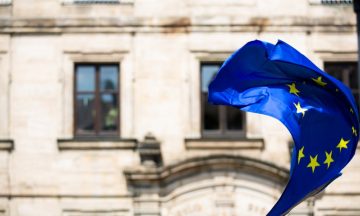
31Jul
CLIC Participation to the EC Workshop on Complementary Funding for Cultural Heritage
The European Commission, through its Work Plan for Culture 2019-2022, organised a first workshop on 25-26 January 2021 on the economic sustainability of cultural heritage, in which the CLIC project also took part.
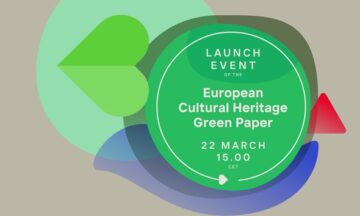
30Jul
CLIC contribution to the European Cultural Heritage Green Paper
One of the things we have loved most about our project has been the amazing opportunity it has given us to discuss challenges and solutions for the cultural heritage sector, being involved in pioneering initiatives which are paving the way for a real change. This is the case of the European Cultural Heritage Green Paper “Putting Europe’s shared heritage at the heart of the European Green Deal”, a much awaited document to which CLIC has proudly contributed providing a focus on the circular economy approach to cultural heritage adaptive reuse.
